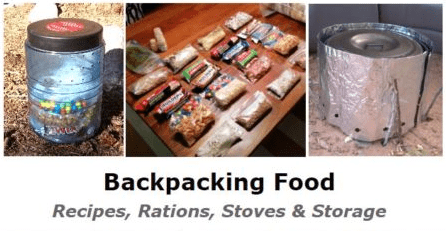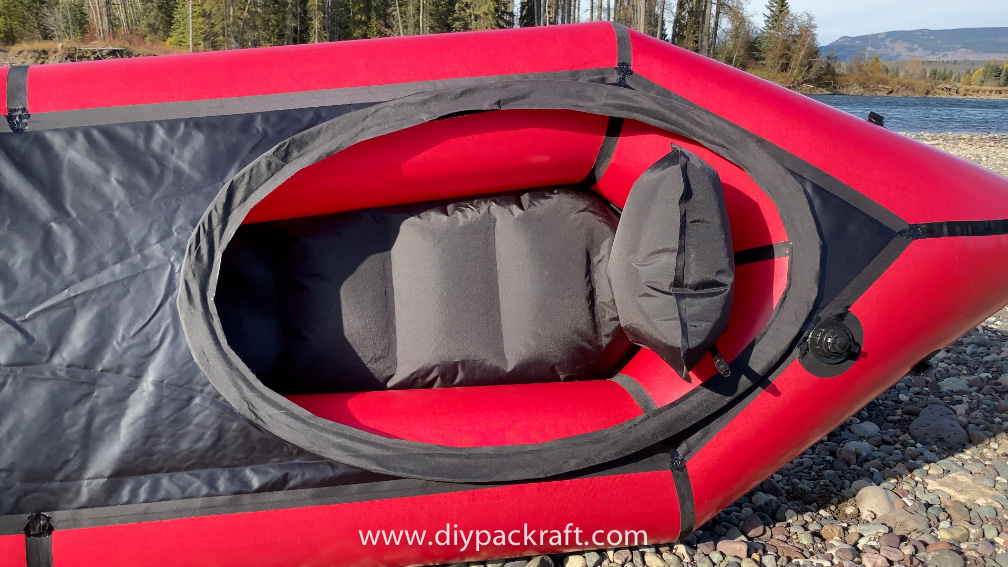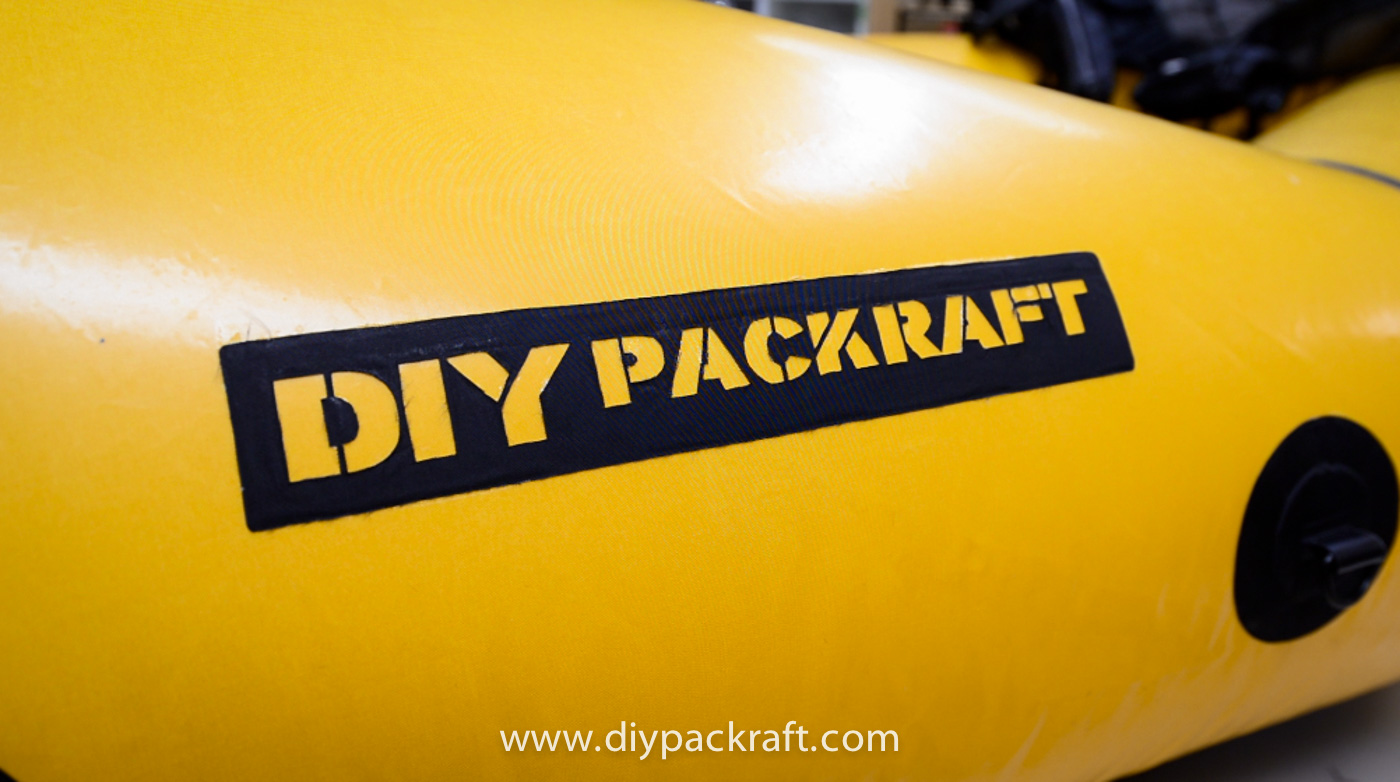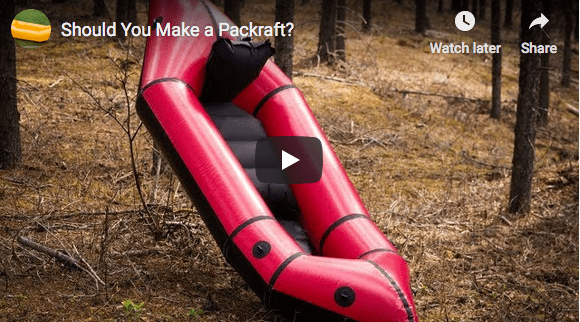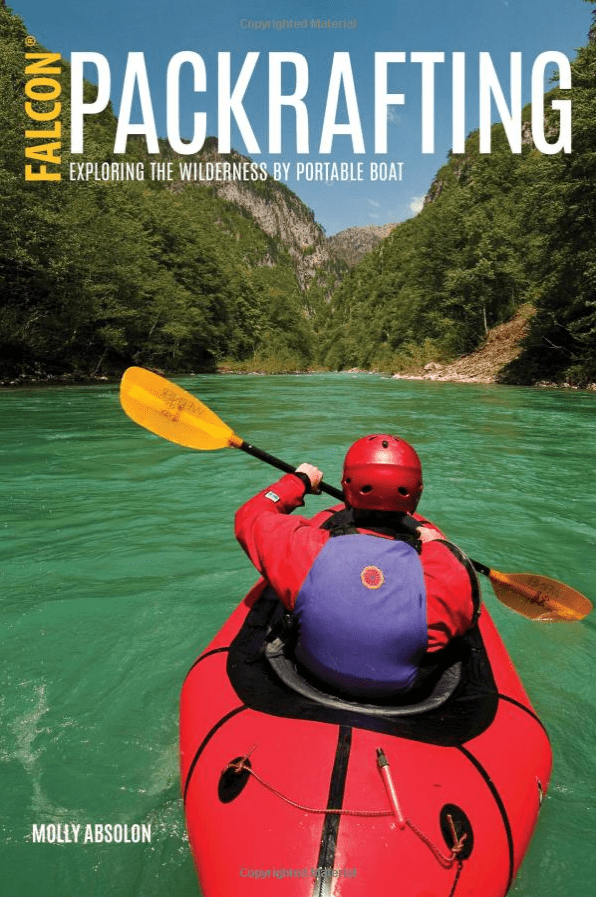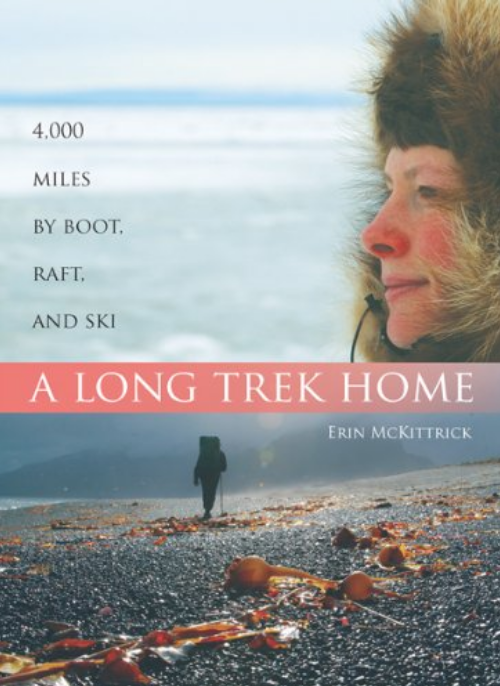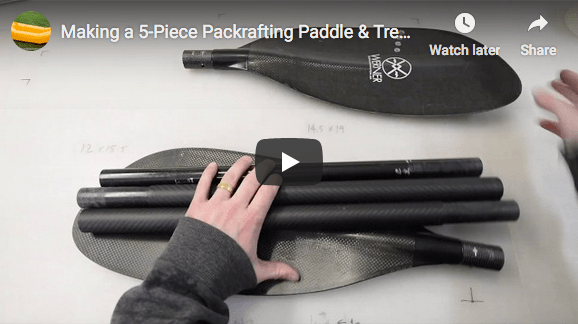-
Matt (Admin) replied to the topic Skeena/Telkwa review wanted re: handling and comparison to other boats in the forum DIY Packrafts 5 years, 1 month ago
Hi Robin,
The Skeena and Telkwa models are so new that probably only a handful of people have finished building theirs, and I’m not sure how many of them have paddled the other packrafts you’re interested in, so it might be a while before you get a useful review. In the meantime, I started writing some notes about things to consider and what to…[Read more]
-
Matt (Admin) replied to the topic urgent help – fixing mistake v3 in the forum DIY Packrafts 5 years, 1 month ago
Hi Sean, I’ve found that the TPU to non-TPU welds aren’t very strong, and with all the rolling and unrolling a packraft goes through, it probably won’t hold forever, so I’d put some Seam Grip (or similar) around the edges so if it does separate there at least it won’t leak. The seam sealing glue isn’t great as a structural adhesive either, though.…[Read more]
-
Matt (Admin) replied to the topic Tips & Tricks in the forum DIY Packrafts 5 years, 2 months ago
Cool – any idea what kind of foam it is? Thanks!
-
Matt (Admin) wrote a new post 5 years, 2 months ago
If you’d like to save some money on a DIY Packraft and give to a worthy charity at the same time, you can bid on a $200 (CAD) DIY Packraft coupon at the annual Rotary Club online auction here. At the time I write […]

-
Matt (Admin) replied to the topic urgent help – fixing mistake v3 in the forum DIY Packrafts 5 years, 2 months ago
Oh, and it should still be airtight even where it’s overheated. Cheers!
-
Matt (Admin) replied to the topic urgent help – fixing mistake v3 in the forum DIY Packrafts 5 years, 2 months ago
Don’t worry – this is not a huge problem! If you can’t un-seal one side by reheating it and peeling it up, and then redo it (which you probably can’t), then I would cut a slit in the floor fabric perpendicular to the edge, long enough so that the fold disappears. Then simply cover the slit with patches – one on the bottom of the packraft’s floor…[Read more]
-
Matt (Admin) replied to the topic Seamgrip vs Aquaseal in the forum DIY Packrafts 5 years, 2 months ago
Minutes… I can’t remember where I read that, but the idea is to use it like contact cement.
-
Matt (Admin) replied to the topic DIY tizip in Kokopelli packraft in the forum DIY Packrafts 5 years, 2 months ago
Excellent – I’m glad it worked out for you, and thanks for posting!
-
Matt (Admin) wrote a new post 5 years, 2 months ago
Andrew Skurka’s free guide to fueling your body in the backcountry
While doing some research for an upcoming packrafting trip, I came across a very useful resource that I’d like to bring to your attention. […]

-
Matt (Admin) replied to the topic Uncharted Rapid Raft in the forum DIY Packrafts 5 years, 2 months ago
I’ll be curious to see the reviews, as I’ve never seen a roll-closure that doesn’t leak some air and it would be annoying to have to frequently add air (as a lot of people who bought Windcatcher camping mattresses have found). Given their false statements about it being the lightest packraft ever, I’m skeptical.
-
Matt (Admin) replied to the topic Kit choice for bikerafting? in the forum DIY Packrafts 5 years, 2 months ago
The 2-person model may be faster, but only when powered by two people. It is much wider than the single-person packrafts, with larger diameter tubes, so it is a very different boat.
The Telkwa’s length cannot be extended. The 2-person packraft could be shortened by removing 20-30 cm of material from the middle of the side tubes and floor, but…[Read more]
-
Matt (Admin) replied to the topic Kit choice for bikerafting? in the forum DIY Packrafts 5 years, 2 months ago
The 2-person is a bit bigger and heavier when packed, so the disadvantage is it would be somewhat more difficult to carry on the bike. It may also be a bit slower on the water due to its larger size being powered by only one person. Cheers!
-
Matt (Admin) replied to the topic Kit choice for bikerafting? in the forum DIY Packrafts 5 years, 2 months ago
The 2-person is a bit bigger and heavier when packed, so the disadvantage is it would be somewhat more difficult to carry on the bike. It may also be a bit slower on the water due to its larger size being powered by only one person. Cheers!
-
Matt (Admin) wrote a new post 5 years, 3 months ago
I’ve been promising a DIY Packraft spray deck + spray skirt kit for literally years, but until now I didn’t have a system that was affordable, simple to make, lightweight, safe, and quick to set up.
After […]

-
Does the location of the optional zipper interfere?
(I haven’t mounted my zip yet)-
I think the location as it’s currently posted in the instructions will interfere, so I will update that. Thanks for the reminder!
-
I’ve updated the Skeena/Telkwa zipper page with dimensions that work with the spray deck.
-
Great! thank you!
-
-
-
-
Excellent! I still have to figure out a price and make sure I have an adequate supply of materials, but I hope to have it posted in the shop next week.
-
Good question… probably not, unless someone really wants it, because the tear strength is significantly lower than that of the 250 GSM fabric and it’s more expensive. The weight savings would be only about 30 grams (1 oz), so it’s probably not worthwhile.
-
Hi Theresa, sorry I don’t do custom products, but you can probably make your own following the same instructions. Cheers!
-
-
Matt (Admin) wrote a new post 5 years, 3 months ago
Every so often I think DIY Packraft should have a logo – something beautiful, clever, iconic, and instantly recognizable – like Apple’s apple or the Coca Cola script… but I’m not a world-class graphic […]

-
I would definitely add this to my packraft! I like it. No-nonsense
-
Cool – thanks for the feedback!
-
-
Matt,
That logo is perfect! I won’t even try to come up with my own version any longer. I’m proud to be a DIY Packraft builder and want others know they don’t have to spend $$$$$ for a packraft. My floating friends are pretty amazed at both my V3 and Telkwa. Good job! -
I want one
-
Unfortunately people complained that it was too difficult to separate all the tiny pieces that weren’t fully cut through, so I stopped scoring fabric for this type of logo. I’m experimenting with other ways of making them though, so hopefully it’ll work out 🙂
-
Would love to have this also on my packrafts. I have a lot of scrap material left over, so is it possible to get a file for printing? I think it will be not too difficult for me to transfers this to the fabric.
Thank you very much
-
I’ve added the image above 🙂
-
-
-
The scoring and cutting out of letters would definitely be tedious, especially when one tackles this near the end of the project and just wants to get on the water. I’ve been looking into print options – getting a logo printed onto some clear material that will stick to the TPU. Not sure what material would stick, so been playing around with logos while waiting for the kit in the mail. Can’t seem to be able to upload screenshots with this post, but would be happy to share.
-
Now that mine has been built and used I think I will add a logo to mine. I like it!
-
-
Matt (Admin) wrote a new post 5 years, 3 months ago
It’s been a couple of years since I made an introductory video for DIY Packraft, so I thought it was time to make a new one.
I don’t really know where to post it, so for now it goes here.

-
Matt (Admin) wrote a new post 5 years, 3 months ago
I don’t know how I failed to notice Molly Absolon’s book, “Packrafting – Exploring the Wilderness by Portable Boat” (2017) until now, but I finally picked up a copy last week and read the nearly 250 pages in […]

-
Matt (Admin) wrote a new post 5 years, 3 months ago
225 pages, 2009, Erin McKittrick
I received A Long Trek Home as a gift in 2009 and I’ve since read it a couple of times. The story follows the author and her husband as they hike, packraft, and ski about […]

-
Matt (Admin) wrote a new post 5 years, 3 months ago
Note: I’m not recommending that you buy an expensive carbon paddle and then cut it up to make a packrafting paddle – if you’re purchasing a new paddle then you can probably find a 4-piece paddle that suits your […]

-
Matt (Admin) wrote a new post 5 years, 3 months ago
When paddling on calm lakes, it’s often possible to enter and exit a packraft without getting your feet wet, but in moving water I find that it’s rarely an option.
In fact, it’s usually a matter of scrambling […]

-
I’ve used the toe shoe things, but I’d put them in the same category as the water shoes, not bad but not great.
For me, crocs and thin biking socks work great when it’s warm. Crocs and neoprene socks work good in the shoulder season. The socks prevent the chafe, you can do some light hiking, and use them as camp shoes.
Your ultralight shoes made out of closed foam would be interesting to try!-
Thanks for the tips! I only used my DIY shoes once because they were so slippery, but I might try to improve the grip somehow – if it works, I’ll post an update. Cheers!
-
-
Hi Arnold – interesting! I probably won’t offer something like this because people come in so many different shapes and sizes it would be a tremendous amount of work, but I think it would be reasonably easy to make a set of lightweight waders using your old ones as a pattern. I’d approach it by purchasing a meter or two of fabric in the weight you want to use and then lay your existing waders on top and kind of trace around them, front and back, adding a bit of an allowance so you have some extra material to seal together around the edges. You could then seal them together with a seam strip (like a packraft’s tubes). I’m not sure how to go about making the boot cover parts (specifically the soles), but doing it the way a leather moccasin is put together might work. You could use packraft floor fabric there, but I’m not sure how grippy that’d be on slippery rocks… maybe coat the bottom with Aquaseal and then sprinkle sand on it while it cures for good grip. Cheers!
-
I have a pair of toe shoe like shoes (different brand, I think Body Glove?) that I found on sale at Cabela’s a number of years ago. They work great for getting across the rocks/mud/sand in and out of my hard shell kayak. They have drain holes in the bottom with wire mesh so nothing big get in but they do get a little grit or light sand inside if the bottom under whatever water you are walking in has that. So;
Pluses;
Comfortable
relatively light weight
very secure (no laces but a velcro strap across the top and a little bungee around the ankle)
Good grip/traction
water drains out easilyCons;
Do get a little bit of light grit in them sometimes
A little difficult to get off when wet
Not super cheap, but reasonable when found onsale.The ones I have are an older version of these:
Men's 3T Barefoot Max Water Shoe in Black/Yellow-
Thanks for the comment! That’s cool that they’ve integrated wire mesh into the drains to keep out most of the grit – I guess that’s the kind of attention to detail you get when you pay a bit more. Cheers!
-
-
I have used Teva sandals over various dry suits while kayaking and whitewater canoeing for a couple decades. I was surprised to wander by REI the other day and discover they are now vastly lighter than my older ones.
The best dry suits were super light ones made by Kakotat, sold by Alpacka. They were fantastic two piece suits, the top served as rain gear too. But they weren’t “fashionable,” just easy to put on, easy to wear, long lasting flexible and light breathable fabric. Everything I wanted, but I kept struggling into my one piece until they were discontinued, alas.
The most comfortable dry suit bottoms I currently have, however, are simple stockingfoot waders. Which I use with a splash top. And yes, helmet, biggest life jacket, rescue gear, the works. Not exactly ultralight.
IMO, if you consider making your own drysuit, use 2-ply or 3-ply breathable fabric. (I’ve been thinking Ripstop by the Roll’s 1.4 oz 10D breathable ultralight ripstop, with breathable heat seal tape.) Rockywoods Fabrics offers a pattern for rain gear that might serve as a general guide, just extend the legs into simple over socks to fit inside shoes.
(My first dry suit was waterproof and it was sweat filled, damp and horrible. So, IMO, don’t use air tight waterproof TPU fabric. Yuck.)
NRS has a better watershoe than my decades old ones, I want to try for boating. But for hiking and packrafting, I think Matt is right to use an ultralight low hiking or trail running shoe, sized large enough to include gortex socks. It’s what my friend Roman Dial uses wandering the Brooks Range.
Bruce
Fairbanks-
Yeah, I’d love to see a new ultralight drysuit offering, or a DIY kit… if only there were more hours in the day! If you try the Ripstop by the Roll stuff, please tell us how it goes! A while ago I was looking into options and it seemed like the latex neck/wrist/ankle gaskets were hard to come by and expensive, but I made a neck gasket out of TPU film that worked pretty well, so that’s an option.
-
-
- Load More

